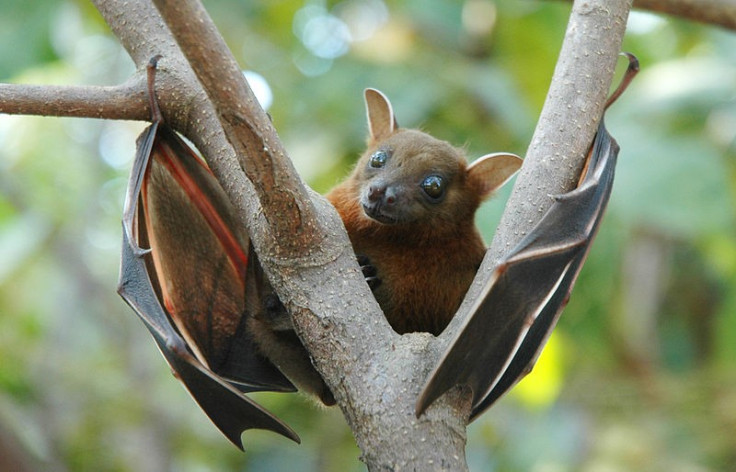Deadly Fruit Bats Threaten Human Population Across Central Africa

Deadly fruit bats pose a threat to the human population across a huge swathe of central Africa, scientists have warned.
Researchers have found a population of fruit bats found across much of Africa is infected with two deadly viruses, Lagos bat virus, a disease similar to rabies, and henipaviruses, which causes neurological and respiratory infections.
Both the diseases found in the fruit bats can be transmitted to humans.
They study into the fruit bats was conducted by the University of Cambridge and the Zoological Society of London's Institute of Zoology and has been published in the journal Nature Communications.
Researchers found the bats covered 4500km, a distance equivalent to that between New York and California. They found that of the 2,000 bats tested in 12 different countries in central Africa, 34% has Lagos bat virus and 42% had henipaviruses.
The study found the bats tested were largely similar genetically, meaning they travelled and mated across the continent. This accounts for the largest freely mixing population structure ever found and means the two viruses can be spread very easily through the bats.
Fruit bats are often hunted for their meat, which can then cause the viruses to be passed on to humans. Henipaviruses can also be spread through contact with urine and faeces.
Danger of knee-jerk response
James Wood, senior author of the study, said: "We now not only know how widespread viral infections are in this bat population, but we also know much more about its population structure.
"This new information indicates that the unique population of freely mixing bats across the entire continent facilitates the spread of the viruses. This has important implications for the monitoring of these viruses in order to prevent its spread to other animals, including humans."
While no instances of either disease has been reported yet in humans, both have been found in pigs in Ghana. Henipaviruses have also killed humans in south east Asia and Australia.
Lead author Alison Peel said that while these findings suggest the potential for a public health concern, bats should not be killed to minimise risk as in reality, the likelihood would be that the viruses would spread faster.
"Sometimes, a knee-jerk response can be to try and remove bats from urban areas via culling or dispersal. However, there is evidence to suggest that actions such as this can stress the bats and lead to a greater risk of spill-over.
"The most appropriate response is ongoing studies and public awareness to avoid handling bats, and to wash the wound thoroughly if you are bitten by a bat."
© Copyright IBTimes 2025. All rights reserved.






















